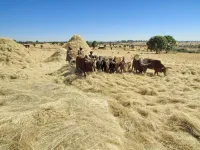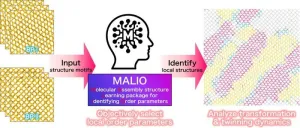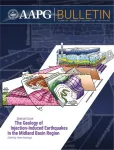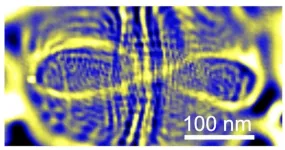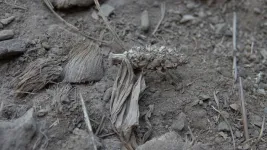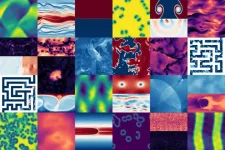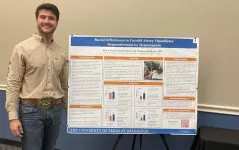(Press-News.org) The consumption of milk products, eggs and fish has a positive effect on childhood development in Africa. This has been demonstrated in a recent study by the CABI's regional centre for Africa in Nairobi, Kenya and the University of Bonn. The researchers used representative data from five African countries with over 32,000 child observations. If the children had a diet containing animal products, they suffered less from malnutrition and related developmental deficiencies. The study has now been published in the journal PNAS.
Almost 150 million children under the age of five around the world suffer from serious growth and developmental disorders. This is also described as “stunting” in scientific circles and is caused by an insufficient supply of essential nutrients. Stunting not only causes children to have a shorter stature but is also related to impaired mental development and increased child mortality rates.
Studies have shown that the consumption of meat, milk products, eggs, and fish can reduce the risk of these developmental deficits. “However, no reliable scientific evidence of these effects had been produced up to now in Africa,” explains Dr. Makaiko Khonje from the CABI's regional centre for Africa in Nairobi, Kenya.
This is now no longer the case after the completion of this latest study in which Khonje and Prof. Dr. Matin Qaim from the Center for Development Research (ZEF) at the University of Bonn evaluated data from five African countries. The data was sourced from representative surveys carried out in Ethiopia, Malawi, Nigeria, Tanzania and Uganda. It covered more than 32,000 observations of children aged up to five years old. Many of the boys and girls were examined multiple times over the years.
Animal products significantly reduce the risk of stunting
The results speak for themselves: If the girl or boy consumed animal products even occasionally, the risk of stunting fell by almost seven percentage points. The consumption of eggs had the largest effect, followed by milk products and fish. In the case of meat, the developmental effects were positive in some countries but not in others. The researchers filtered out the influence of other factors such as family income or parental education in their statistical analysis.
The study also showed that fruits, vegetables and pulses were good for growth and development. “However, the positive effect of a purely plant-based diet was lower than if the child also consumed animal products,” says Khonje. “Especially in rural areas, a sufficient amount of nutritious plant-based food is often not available throughout the year. Our results indicate that access to animal-sourced foods should be improved, especially for poorer families, in order to combat malnutrition.”
The results cannot be transferred to richer countries
Livestock farming is a driver of global warming. It produces significantly more greenhouse gases than the cultivation of cereals, fruit or vegetables. “It will only be possible to achieve our climate targets if we significantly reduce the consumption of animal products worldwide,” emphasizes Matin Qaim, who is also a member of the transdisciplinary research area (TRA) “Sustainable Futures” and in the PhenoRob Cluster of Excellence.
Nevertheless, different approaches are required to achieve this goal: “People in Europe and North America consume four times more milk and meat on average than people in Africa. Therefore, it is certainly sensible in high-income countries to limit the consumption of animal-sourced food,” says Qaim. “Yet such a step would further exacerbate the issue of malnutrition in children in poorer populations on the African continent.” It is also not possible to transfer the results of the study to Germany: The consumption of animal products in Germany is significantly higher than is recommended for a healthy diet.
The paper is part of a PNAS Special Feature that focuses on the sustainability of animal-sourced foods and plant-based alternatives. Prof. Qaim, a “Schlegel Chair” at the University of Bonn, is one of the leading researchers behind this “Special Feature.”
Participating institutes and funding:
CABI's regional centre for Africa in Nairobi, Kenya and the University of Bonn participated in the study.
Publication: Makaiko G. Khonje and Matin Qaim: Animal-sourced foods improve child nutrition in Africa; PNAS;
DOI: https://doi.org/10.1073/pnas.2319009121 (Open Access).
Media contact:
Prof. Dr. Matin Qaim
Center for Development Research (ZEF) at the University of Bonn
Tel. +49 228-73-1847
E-mail: mqaim@uni-bonn.de
Dr. Makaiko Khonje
CABI
Nairobi (Kenya)
Tel. +254 20 2271000/20
E-Mail: m.khonje@cabi.org
END
Animal products improve child nutrition in Africa
A study by the University of Bonn and the CABI Centre in Kenya shows that milk, eggs and fish are good for child development
2024-12-02
ELSE PRESS RELEASES FROM THIS DATE:
Dynamics of structural transformation for liquid crystalline blue phases
2024-12-02
Fukuoka and Tsukuba, Japan—Researchers have uncovered key insights about how liquid crystals, materials capable of forming complex ordered structures, transform between different phases. Published in PNAS, the study provides a clearer understanding of how these materials change their structures at the microscopic level. This research could provide a means to give a deeper insight into the transformation between different structures in a wider variety of materials.
Liquid crystals are materials that exhibit properties of both liquids and solids. They flow like liquids but can also ...
Study untangles how COVID-19 wreaks widespread damage in the body
2024-12-02
New research published in the journal Proceedings of the National Academy of Sciences sheds light on the pathways that drive organ damage and death in severe COVID-19 and helps explain why survivors of the disease can experience long-term complications.
“Our study resolves some of the long-standing unanswered questions about how the SARS-CoV-2 virus impacts the body,” said co-senior author Afshin Beheshti, Ph.D., professor of surgery and computational and systems biology at the University of Pittsburgh School of Medicine and associate director of the McGowan Institute for Regenerative Medicine. “The findings point ...
New research provides an improved understanding of earthquake hazards in the Permian Basin
2024-12-02
A new collection of published papers offers the most detailed and comprehensive breakdown yet of how water injected into the Permian Basin during oil and gas operations is changing subsurface pressures and causing earthquakes.
The Permian Basin in West Texas is the country’s most prolific energy-producing region, accounting for more than 40% of the nation’s oil production and about 15% of gas production. However, energy production has caused earthquakes and other challenges in recent years as oil and gas operators now manage roughly 15 million barrels of produced wastewater each day. This briny water comes to the surface ...
Physics experiment proves patterns in chaos in peculiar quantum realm
2024-12-02
Where do you see patterns in chaos? It has been proven, in the incredibly tiny quantum realm, by an international team co-led by UC Santa Cruz physicist Jairo Velasco, Jr. In a new paper published on November 27 in Nature, the researchers detail an experiment that confirms a theory first put forth 40 years ago stating that electrons confined in quantum space would move along common paths rather than producing a chaotic jumble of trajectories.
Electrons exhibit both particle and wave-like properties—they ...
Partially domesticated maize is found in caves in Minas Gerais state, Brazil
2024-12-02
Brazilian scientists have determined that ancient specimens of partially domesticated maize (Zea mays, also known as corn) originally from Peruaçu Valley in Minas Gerais state (Brazil) were the farthest from Mexico, the plant’s historic center of origin, of any finds made so far. An article describing their research is published in the journal Science Advances. The study was led by researchers affiliated with the University of São Paulo (USP) and EMBRAPA, the Brazilian Agricultural Research Corporation.
The findings reinforce the theory, based on genetic evidence from plants alive now, that domestication ...
With UH assist, two universities in India launch Doctor of Nursing degree program
2024-12-02
With support from the University of Houston's Andy & Barbara Gessner College of Nursing, two universities in India - MGM Institute of Health Sciences in Mumbai and Krishna Institute of Medical Sciences - have introduced the Doctor of Nursing Practice degree, expanding advanced nursing education in the country. It is the first time any university in India has offered the degree.
The Gessner College graduated its first class of DNP professionals in May 2024.
The DNP doctorate degree ...
New datasets will train AI models to think like scientists
2024-12-02
What can exploding stars teach us about how blood flows through an artery? Or swimming bacteria about how the ocean’s layers mix? A collaboration of researchers from universities, science philanthropies and national laboratories has reached an important milestone toward training artificial intelligence models to find and exploit transferable knowledge between seemingly disparate fields to drive scientific discovery.
This initiative, called Polymathic AI, uses technology similar to that powering large language models such as OpenAI’s ChatGPT ...
Brief scientific literacy interventions may quash new conspiracy theories
2024-12-02
UNIVERSITY PARK, Pa. — The more time you spend on social media, the likelier you are to have come across a viral post that seems too strange to be true. Brief scientific literacy interventions, especially those that focus on critical thinking skills, may help to undermine conspiracy beliefs and behaviors before the conspiracy theories have a chance to take root, according to a team led by Penn State researchers.
The team published their findings in the Journal of Consumer Research.
\“While some conspiracy beliefs may seem relatively harmless, others — about vaccines, genetically modified organisms and climate change, for example ...
Illinois researchers examine teens’ use of generative AI, safety concerns
2024-12-02
CHAMPAIGN, Ill. — Teenagers use generative artificial intelligence for many purposes, including emotional support and social interactions. A study by University of Illinois Urbana-Champaign researchers found that parents have little understanding of GAI, how their children use it and its potential risks, and that GAI platforms offer insufficient protection to ensure children’s safety.
The research paper by information sciences professor Yang Wang, the co-director of the Social Computing Systems Lab, and doctoral student Yaman Yu is one of the first published sources of data on the uses and risks of GAI for children. Wang ...
UTA student recognized for research on high-fat diets
2024-12-02
University of Texas at Arlington senior Ken Perry has always been interested in how the heart works. This curiosity led the Arlington High School graduate to start working in the lab of UTA kinesiology Professor R. Matthew Brothers during his second year of college. Now, two years later, Perry is the recipient of two research awards from the American Physiological Society (APS) for his research on a connection between high-fat meals and cardiovascular health.
“I always wanted to learn about heart and blood flow, so when friend of mine interested in research encouraged me to apply for the SURPINT program ...
LAST 30 PRESS RELEASES:
National Reactor Innovation Center opens Molten Salt Thermophysical Examination Capability at INL
International Progressive MS Alliance awards €6.9 million to three studies researching therapies to address common symptoms of progressive MS
Can your soil’s color predict its health?
Biochar nanomaterials could transform medicine, energy, and climate solutions
Turning waste into power: scientists convert discarded phone batteries and industrial lignin into high-performance sodium battery materials
PhD student maps mysterious upper atmosphere of Uranus for the first time
Idaho National Laboratory to accelerate nuclear energy deployment with NVIDIA AI through the Genesis Mission
Blood test could help guide treatment decisions in germ cell tumors
New ‘scimitar-crested’ Spinosaurus species discovered in the central Sahara
“Cyborg” pancreatic organoids can monitor the maturation of islet cells
Technique to extract concepts from AI models can help steer and monitor model outputs
Study clarifies the cancer genome in domestic cats
Crested Spinosaurus fossil was aquatic, but lived 1,000 kilometers from the Tethys Sea
MULTI-evolve: Rapid evolution of complex multi-mutant proteins
A new method to steer AI output uncovers vulnerabilities and potential improvements
Why some objects in space look like snowmen
Flickering glacial climate may have shaped early human evolution
First AHA/ACC acute pulmonary embolism guideline: prompt diagnosis and treatment are key
Could “cyborg” transplants replace pancreatic tissue damaged by diabetes?
Hearing a molecule’s solo performance
Justice after trauma? Race, red tape keep sexual assault victims from compensation
Columbia researchers awarded ARPA-H funding to speed diagnosis of lymphatic disorders
James R. Downing, MD, to step down as president and CEO of St. Jude Children’s Research Hospital in late 2026
A remote-controlled CAR-T for safer immunotherapy
UT College of Veterinary Medicine dean elected Fellow of the American Academy of Microbiology
AERA selects 34 exemplary scholars as 2026 Fellows
Similar kinases play distinct roles in the brain
New research takes first step toward advance warnings of space weather
Scientists unlock a massive new ‘color palette’ for biomedical research by synthesizing non-natural amino acids
Brain cells drive endurance gains after exercise
[Press-News.org] Animal products improve child nutrition in AfricaA study by the University of Bonn and the CABI Centre in Kenya shows that milk, eggs and fish are good for child development
